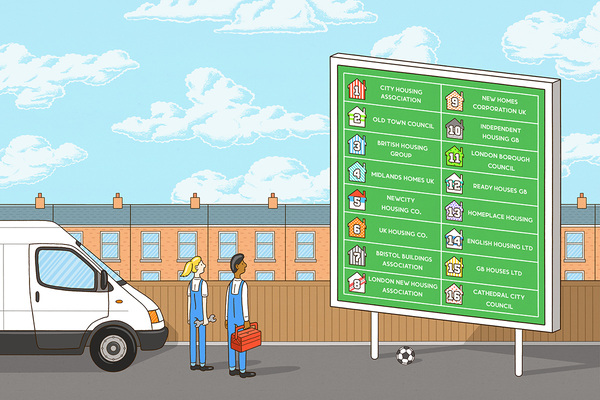You are viewing 1 of your 1 free articles
Our thematic reports can help the social housing sector address the deep-rooted reasons for complaints
Our new work investigating systemic and thematic work should allow us to respond to warning signs and maximise the impact of our preventative role. It’s all part of establishing a positive complaint handling culture across the sector, writes Richard Blakeway
Across the world, one of the most powerful features of an ombudsman is the ability to investigate beyond an individual complaint. This approach differs from country to country and scheme to scheme.
We’ve recently published our framework for investigating systemic and thematic issues. This framework will support the proactive identification of key issues impacting residents and the sector. It addresses three areas: the scope of our power, when and how we will use it, and possible outcomes.
Under our revised scheme, the Housing Ombudsman is able to look for the first time beyond individual disputes into the wider and deeper issues responsible for generating complaints, so that we can, in turn, seek to address those issues using a range of outcomes to improve residents’ lives and landlords’ services.
It’s important to distinguish this work from our handling of group disputes, where we investigate complaints from several residents together or recommend remedies for neighbouring residents in addition to the one who complained.
Instead, our systemic and thematic work should allow us to respond to warning signs and maximise the impact of our preventative role. It provides an opportunity to strengthen resident and landlord relationships, share insight from our complaints and extend access to fairness for all residents, regardless of whether they have complained.
In doing so, it is important we distinguish between three issues: failures in complaint handling, where further work could support earlier resolution of disputes; service failures, where further investigation into underpinning policies, procedures or approach could prevent service failure reoccurrence; and reoccurring issues across several landlords where further investigation could promote greater understanding and sharing of best practice.
To my mind, these are distinct issues which should result in different outcomes, although they can and will overlap during the course of an investigation.
So what will lead us to investigate? Over the past few months, we have developed our systems to identify, within the thousands of complaints we handle each year, issues and trends within an individual landlord, across a group of landlords or sector-wide.
This picture is becoming richer as our new powers come into effect – for example, the publication of our landlord performance reports and issuance of Complaint Handling Failure Orders. We may consider relevant information produced by others, too.
Landlords and residents will have seen some of this work in action with our thematic reports into issues like heating and hot water or shared ownership. Forthcoming investigations will examine cladding and damp.
This thematic work continues the inquisitorial approach you would expect from an ombudsman and should characterise our endeavours in this space. Fundamentally, I want our use of these new powers to promote a culture of learning and openness, allowing better insight into the root cause of problems and sharing learning to drive better service delivery for all residents.
And what should be the result of this work? The possible outcomes are wide-ranging, depending on whether we are examining complaint handling or service failure, an individual or group of landlords. But a single word is important – proportionate.
Our scheme does allow referral to the Regulator of Social Housing, but that really should be the last resort and would certainly come after the landlord’s governing body has had the opportunity to respond. The focus instead should be on engagement, identifying learning and making recommendations for landlords to take action – and so it is important for landlords to engage positively.
Finally, our service is publishing increasing amounts of information about our work, and we will take the same approach to our systemic work, too – raising awareness of issues, sharing good practice, and building on our aim of establishing a positive complaint handling culture across the sector.
Richard Blakeway, housing ombudsman
Sign up for our legal and regulation newsletter
Already have an account? Click here to manage your newsletters















